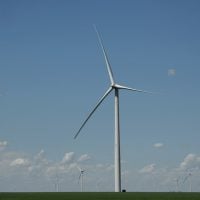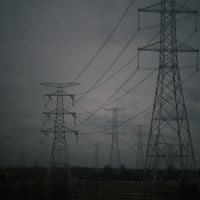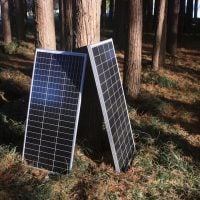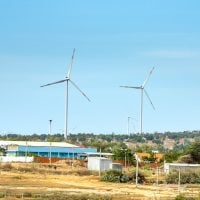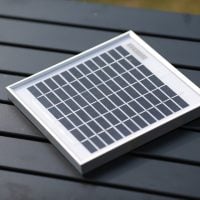The global shift towards sustainable energy sources has opened a plethora of opportunities for entrepreneurs in the clean energy sector. As climate change continues to pose significant threats to our planet, the demand for innovative solutions that reduce carbon footprints and promote environmental sustainability has never been greater. Clean energy entrepreneurship is not just about creating businesses; it is about fostering a movement that prioritizes ecological balance while also addressing economic needs.
Entrepreneurs in this field are uniquely positioned to drive change, harnessing technology and creativity to develop solutions that can transform how we produce and consume energy. The clean energy landscape is diverse, encompassing various sectors such as solar, wind, hydropower, geothermal, biomass, and more. Each of these sectors presents unique challenges and opportunities for entrepreneurs willing to innovate and adapt.
By understanding the intricacies of these energy sources, aspiring clean energy entrepreneurs can identify gaps in the market and develop solutions that not only meet consumer needs but also contribute to a sustainable future. This article will explore various clean energy opportunities, providing actionable insights and real-world examples to inspire and guide those looking to make their mark in this vital industry. Are You Working on Solar Innovation or Clean Energy Access? Join us to receive updates.
Solar Energy Opportunities
Solar energy has emerged as one of the most accessible and rapidly growing sectors within the clean energy landscape. With advancements in photovoltaic technology and decreasing costs of solar panels, entrepreneurs have a unique opportunity to tap into this burgeoning market. One of the most promising avenues is the development of community solar projects, which allow multiple households or businesses to share the benefits of a single solar installation.
This model not only democratizes access to solar energy but also fosters community engagement and investment in local renewable resources. Moreover, entrepreneurs can explore innovative financing models such as power purchase agreements (PPAs) or solar leasing options that make solar installations more affordable for consumers. For instance, companies like Sunrun have successfully implemented these models, allowing homeowners to install solar panels with little to no upfront costs while paying a fixed rate for the electricity generated.
By leveraging such financing strategies, clean energy entrepreneurs can significantly lower barriers to entry for consumers, driving adoption and expanding their market reach.
Wind Energy Opportunities
Wind energy represents another significant opportunity for clean energy entrepreneurs. As technology advances and wind turbine efficiency improves, the potential for harnessing wind power continues to grow. Entrepreneurs can explore various niches within this sector, including the development of small-scale wind turbines for residential or commercial use.
These smaller systems can provide localized energy solutions, particularly in rural areas where access to traditional power grids may be limited. Additionally, offshore wind farms are gaining traction as a viable source of renewable energy. The United States has seen a surge in interest in offshore wind projects along its coasts, with states like Massachusetts and New York leading the charge.
Entrepreneurs can capitalize on this trend by developing innovative solutions for turbine installation, maintenance, or even floating wind technology that allows turbines to be placed in deeper waters where winds are stronger and more consistent. By focusing on these emerging opportunities, clean energy entrepreneurs can position themselves at the forefront of the wind energy revolution.
Hydropower Opportunities
Hydropower has long been a cornerstone of renewable energy generation, but there remains significant potential for innovation within this sector. Entrepreneurs can explore small-scale hydropower projects that harness the energy of rivers and streams without the environmental impact associated with large dams. These micro-hydropower systems can provide reliable energy sources for remote communities or off-grid applications, making them an attractive option for sustainable development.
Furthermore, advancements in hydrokinetic technology—devices that generate electricity from the movement of water—offer exciting opportunities for entrepreneurs. Companies like Verdant Power have pioneered hydrokinetic turbines that can be installed in rivers or tidal areas, generating power without disrupting aquatic ecosystems. By focusing on environmentally friendly hydropower solutions, clean energy entrepreneurs can contribute to sustainable energy generation while addressing local energy needs.
Geothermal Energy Opportunities
Geothermal energy is often overlooked in discussions about renewable resources, yet it offers immense potential for clean energy entrepreneurs. This form of energy harnesses heat from beneath the Earth’s surface, providing a consistent and reliable power source. Entrepreneurs can explore opportunities in geothermal heating and cooling systems for residential and commercial buildings, which can significantly reduce energy consumption and costs.
Additionally, enhanced geothermal systems (EGS) are gaining attention as a way to expand geothermal energy’s reach beyond traditional geothermal hotspots. EGS technology involves injecting water into hot rock formations to create steam that can drive turbines for electricity generation. Companies like Ormat Technologies are leading the way in developing EGS projects that could unlock geothermal potential in regions previously deemed unsuitable for geothermal development.
By investing in research and development within this sector, clean energy entrepreneurs can help pave the way for broader adoption of geothermal technologies.
Biomass Energy Opportunities
Biomass energy presents a unique opportunity for clean energy entrepreneurs to convert organic materials into usable fuel sources. This sector encompasses a wide range of feedstocks, including agricultural residues, forestry byproducts, and even municipal solid waste. Entrepreneurs can explore innovative methods for converting biomass into biofuels or biogas, which can be used for heating, electricity generation, or transportation.
One successful example is the company Bioenergy DevCo, which focuses on anaerobic digestion technology to convert organic waste into renewable natural gas. By partnering with local municipalities and businesses to collect organic waste, they not only reduce landfill contributions but also create a sustainable source of energy. Entrepreneurs looking to enter the biomass sector should consider forming partnerships with local agricultural or waste management entities to create a circular economy that benefits both the environment and local communities.
Energy Storage and Grid Integration Opportunities
As renewable energy sources like solar and wind become more prevalent, the need for effective energy storage solutions becomes increasingly critical. Entrepreneurs have an opportunity to innovate in this space by developing advanced battery technologies or other storage systems that can help balance supply and demand on the grid. For instance, companies like Tesla have made significant strides in battery technology with their Powerwall product, which allows homeowners to store excess solar energy for use during peak demand times.
Moreover, integrating renewable energy sources into existing grid infrastructure presents additional opportunities for entrepreneurs. Smart grid technologies that enhance communication between energy producers and consumers can optimize energy distribution and improve overall efficiency. Entrepreneurs can explore software solutions that facilitate real-time monitoring and management of energy consumption, helping consumers make informed decisions about their energy use while supporting grid stability.
Energy Efficiency and Smart Building Opportunities
Energy efficiency is a critical component of reducing overall energy consumption and greenhouse gas emissions. Clean energy entrepreneurs can focus on developing products or services that enhance building efficiency through smart technologies. For example, smart thermostats like Nest have revolutionized how homeowners manage their heating and cooling systems by learning user preferences and optimizing energy use accordingly.
Additionally, retrofitting existing buildings with energy-efficient technologies presents a significant market opportunity. Entrepreneurs can offer services that assess building performance and recommend upgrades such as LED lighting, high-efficiency HVAC systems, or improved insulation. By helping building owners reduce their energy consumption, clean energy entrepreneurs not only contribute to sustainability efforts but also create cost savings for their clients.
Electric Vehicle Infrastructure Opportunities
The rise of electric vehicles (EVs) has created a burgeoning market for infrastructure development that supports their adoption. Clean energy entrepreneurs can explore opportunities in EV charging station installation and management, particularly as governments around the world implement policies aimed at reducing carbon emissions from transportation. Companies like ChargePoint have established extensive networks of charging stations across various regions, demonstrating the demand for accessible EV infrastructure.
Moreover, integrating renewable energy sources into EV charging stations presents an exciting opportunity for innovation. Entrepreneurs can develop charging stations powered by solar panels or wind turbines, creating a sustainable ecosystem for electric vehicle users. By focusing on this intersection of clean transportation and renewable energy, entrepreneurs can play a pivotal role in shaping the future of sustainable mobility.
Clean Energy Financing and Investment Opportunities
As the clean energy sector continues to grow, so does the need for innovative financing solutions that support new projects and technologies. Entrepreneurs can explore opportunities in clean energy financing by developing platforms that connect investors with renewable energy projects seeking funding. Crowdfunding platforms like Mosaic have successfully facilitated investments in solar projects by allowing individuals to invest small amounts in exchange for returns based on project performance.
Additionally, green bonds are gaining popularity as a means of financing large-scale renewable energy projects while attracting socially responsible investors. Entrepreneurs can work with financial institutions to create tailored financing products that meet the unique needs of clean energy developers while ensuring attractive returns for investors. By bridging the gap between capital providers and clean energy projects, entrepreneurs can help accelerate the transition to a sustainable future.
Conclusion and Next Steps for Clean Energy Entrepreneurs
The clean energy sector is ripe with opportunities for entrepreneurs willing to innovate and adapt to changing market dynamics. From solar and wind to biomass and electric vehicle infrastructure, there are numerous avenues for creating impactful businesses that contribute to sustainability goals while addressing pressing global challenges. As aspiring clean energy entrepreneurs embark on their journeys, it is essential to stay informed about industry trends, technological advancements, and regulatory changes that may influence their ventures.
Networking with other professionals in the clean energy space can provide valuable insights and foster collaborations that enhance business prospects. Additionally, seeking mentorship from experienced entrepreneurs or industry experts can help navigate challenges and identify growth opportunities more effectively. By remaining committed to innovation and sustainability principles, clean energy entrepreneurs can play a crucial role in shaping a greener future while building successful businesses that benefit both society and the environment.
In the realm of clean energy entrepreneurship, the article “25 Global Opportunities for Clean Energy Entrepreneurs” highlights various avenues for innovation and growth. A related article that complements this discussion is the call for proposals on the “Method Refinement and Standardization for Microplastics Sample Collection and Analysis.” This initiative, detailed in the article available here, underscores the importance of scientific advancements in environmental sustainability. By refining methods for microplastics analysis, this project supports the broader goal of reducing pollution and promoting cleaner ecosystems, which aligns with the objectives of clean energy entrepreneurs seeking to create sustainable solutions.

